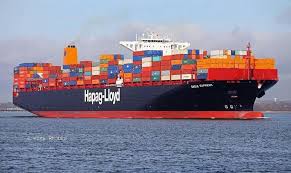Just in: Nigeria foreign reserves jump on failed US-Iran nuclear deal as oil price hits $77.2
Tuesday’s surprise pullout of US President, Donald Trump from an international nuclear deal with Iran, Wednesday resulted in global oil price cruising to almost a four-year high of $77.2 even as world stocks held steady.
Otherwise, Trump’s move sparked fears of increased tension in the Middle East and uncertainty over global oil supplies.
Demand for safe-haven assets remained muted as the immediate market impact was seen as specific to oil supply, but investors remained mindful of the knock-on effects on inflation.
Brent crude futures LCOc1 jumped as much as 2.8 percent to a three and half year high of $77.20.
In an interview Wednesday, Mr. Jubril Kareem, an Energy Research Analyst at Ecobank Nigeria said the pullout of US from Iran Nuclear talks portends huge benefit for Nigeria on one hand; as the economy that is dependent on global oil price will be earn more form oil sales.
On the other hand, Nigerians may not be ready for the negative ripple effects that will manifest in fuel scarcity because landing cost will jump unprecedentedly.
Also on the same page of advantage to Nigeria, chief executive of Financial Derivatives, Bismark Rewane said as the US pullout lasts, Nigeria will be cruising on high profits and sales from crude oil.
However, the pullout also portends danger for the entire world and nonaligned nations as Uranium enrichment by the Iranian government may deepen within the period and further post danger to the world.
Besides, other global commodities already affected by Trump’s decision on Tuesday include gold and world stocks.
Gold prices XAU= retreated and bond yields rose. The U.S. 10-year Treasury US10YT=RR once again breached the psychologically significant 3-percent level and hit a two-week high of 3.0140 percent, supported by expectations of higher interest rates.
“In an environment where the Fed, particularly, is already at its inflation target and people are closely watching the pace of the monetary tightening, something like this which could possibly nudge inflation a little bit higher is going to be quite interesting for the market,” UBS Wealth Management’s UK chief investment office deputy head, Caroline Simmons, said.
“That’s why you’re seeing the yields go up a little bit on the bonds,” she said.
The impact of Trump’s decision was mostly limited to oil markets and energy-related stocks. West Texas Intermediate crude futures CLc1 hit their highest level since November 2014 at $71.17 per barrel, last up 2.7 percent.
“There is still an interim period before sanctions kick in. And other signatories and Iran want to keep the deal going so there is a period where things could be hammered out,” ING rates strategist Benjamin Schroeder said.
“But I would have expected a bit of a safe-haven bid this morning,” he noted, referring to bonds.
The MSCI world equity index .MIWD00000PUS, which tracks shares in 47 countries, was flat and continued to trade in a narrow range. The pan-European STOXX 600 meanwhile rose 0.2 percent as oil majors gained and earnings from Siemens (SIEGn.DE) and Imperial Brands (IMB.L) dominated trading.
In the U.S., stocks futures pointed to a positive start for Wall Street, with E-Mini futures for the S&P 500 ESc1 up 0.5 percent.
“In the very short term, it looks as if the impact of heightened geopolitical worries was limited to oil markets. But that is not the end of the story,” Mitsubishi UFJ Morgan Stanley Securities senior investment strategist Norihiro Fujito said.
“U.S. sanctions could affect various industries. And tensions between Iran and Israel look set to intensify. Those will begin to cap share prices,” he said.
The reaction in Asian markets was more pronounced as renewed U.S. sanctions on Tehran were seen as disruptive for many companies that have dealings with Iran. Trump’s move is also seen as likely to worsen already-tense relations between Iran and U.S. allies in the region.
MSCI’s broadest index of Asia-Pacific shares outside Japan .MIAPJ0000PUS was up 0.1 percent, while Japan’s Nikkei .N225 fell 0.4 percent.
Iran, the third-biggest OPEC producer, produces about 3.8 million barrels per day (bpd), or about 4 percent of the world’s oil supplies.
The U.S. Treasury said it will reimpose a wide array of Iran-related sanctions after the expiry of 90- and 180-day wind-down periods, including those aimed at Iran’s oil sector and transactions with its central bank.









